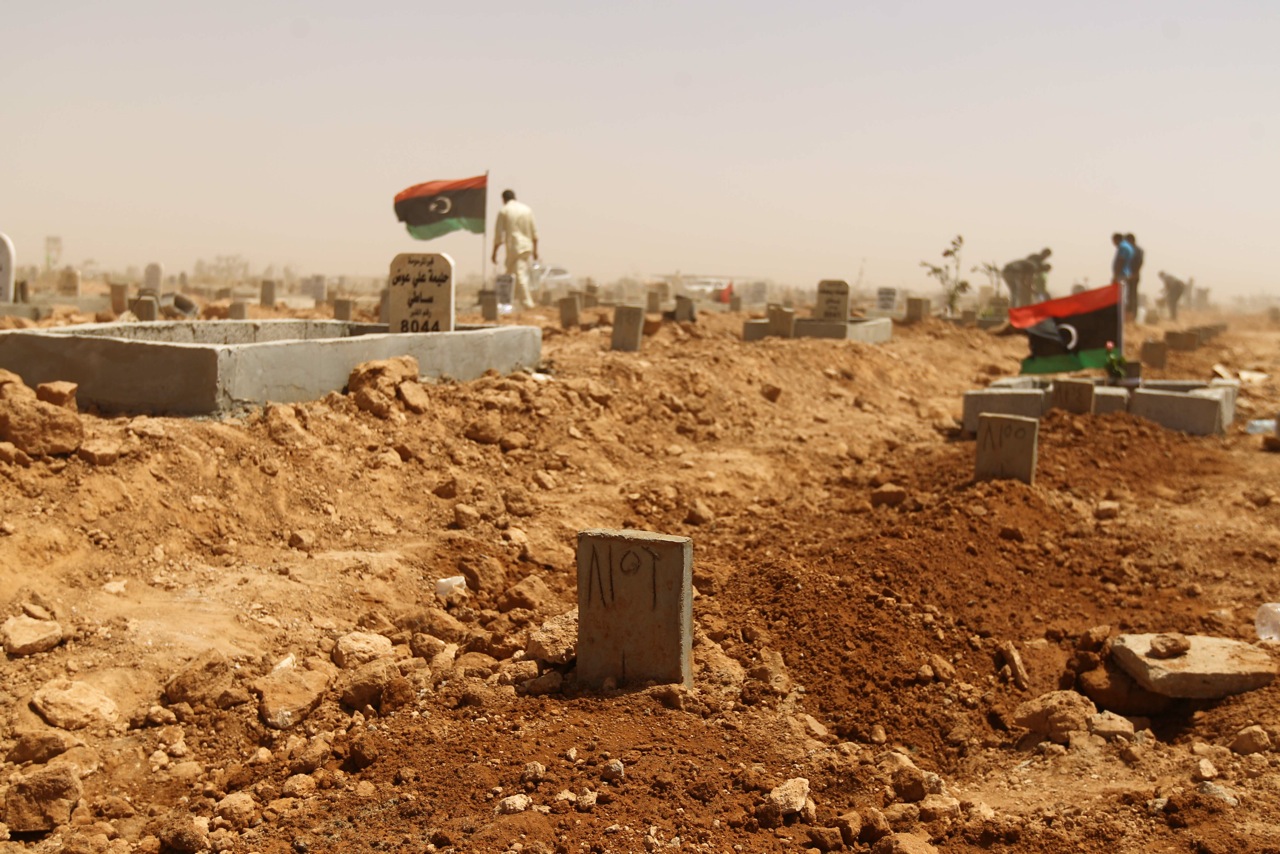By Moutaz Ahmed.

Benghazi, 27 June 2014:
Between 400 and 500 mourners gathered at Benghazi’s Hawari cemetery today to bury . . .[restrict]human rights activist Salwa Bugaighis whose brutal murder on Wednesday has reverberated across the country.
Bugaighis’ body travelled from her family home where it had rested since yesterday to the graveyard in Hawari where a brief ceremony was held before the burial. Bugaighis would have been buried, by Islamic rite, yesterday but time was given to her sons to return from Jordan. Bugaighis and her husband, Essam Al-Ghariani, who is missing had been staying in Jordan but had returned to Benghazi to vote in Wednesday’s elections and for him to take up his duties as a newly elected Benghazi municipal councillor.
The graveyard, which has been extended to house the influx of dead from recent violence in Benghazi, was awash with mourners paying their respects, each in their own way, amongst the scores of freshly dug graves and in scorching heat.
One mourner told the Libya Herald that Bugaighis had been worth more than a thousand men. He said Benghazi’s sorrow over the killing was deep and genuine and what had occurred was a complete disaster. He added that the facts of her killing had to be established and the government bring Bugaighis’ killers to justice.
Across the city tributes have been made to the slain lawyer and activist. One lawyer who had worked with Bugaighis, but who did not want his identity known, said her murder had been perpetrated by “hateful cowards”. He said that they had wished to obstruct progress and now Bugaighis who had “spoken out against the forces of evil and darkness” was joining the “constellation of martyrs”.
Another mourner said Wednesday’s killing in Benghazi was not representative of the Libyan people and that such assassinations had to stop. She said what had happened was ugly and sinful, a brutal violation of the sanctity of the home. She said the city had not witnessed such shameless attacks in the past and hopefully would not see such violence again.
NGO worker Marwan Gargoum said Bugaighis had fought for the 17 February Revolution from the very beginning. She had played a huge role before the revolution as well, helping victims of sexual violence and the underprivileged.
Bugaighis had paid in blood for the future of Libya, the building of state institutions and the rule of law, he said.
[/restrict]








